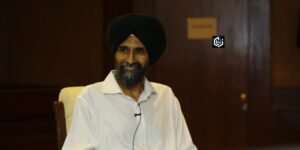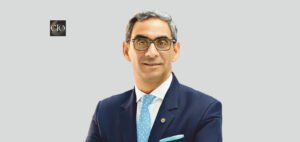In the advancing landscape of education, few individuals leave a mark as lasting and transformative as Dr. Richard Larson. A celebrated author, professor, visionary researcher, and compassionate mentor, Larson has dedicated over five decades of his life to not just teaching, but to shaping minds and influencing educational structures across the globe. His belief in education as the most powerful tool for personal and societal transformation has inspired countless students, educators, and policymakers alike.
From a young student intrigued by the simplicity of physics to a globally respected academic, Dr. Larson’s journey has been nothing short of inspirational. At the heart of his life’s work lies an unwavering commitment to quality education, equal access, and the value of mentorship. His tenure at the Massachusetts Institute of Technology (MIT) stands as a testament to how one individual’s persistence and vision can contribute to generations of intellectual growth.
This piece delves deep into the story of Dr. Richard Larson—his humble beginnings, his academic evolution, his influence as a mentor and educator, and his legacy as a visionary who believes in the boundless potential of education to transform lives. Let us explore how his journey became synonymous with excellence in research, leadership in operations, and a human-centered approach to teaching.
Education: A Transformative Force
According to Dr. Richard Larson, education is not just a right; it is a necessity that transcends social and economic boundaries. He firmly believes that every individual—regardless of background—deserves access to quality education. To him, education is a ladder that leads to opportunity, equality, and personal empowerment. In his words, it bridges the gap between poverty and progress, between ignorance and understanding, and between limitation and possibility.
Throughout his career, Richard Larson has consistently advocated for education as the cornerstone of a prosperous society. Whether working with policymakers, advising students, or researching technological applications in education, he has stressed its ability to uplift, enable, and inspire. Education, he insists, is an investment that yields lifelong dividends—one that can never be taken away from an individual.
In a world where the landscape of education is rapidly changing, Richard Larson stands firm in his belief that mentorship and guidance are essential components of the learning process. With the right teacher and the right direction, he believes, any student can excel and turn challenges into opportunities.
Early Life and Academic Roots
Born in 1943 in Bayside, Queens, New York City, Richard Larson’s early years were marked by movement and growth. At the age of five, his family moved to Pennsylvania and later to North Plainfield, New Jersey. Eventually, he attended Needham High School in Massachusetts, a place that nurtured his curiosity and academic interests.
Richard Larson discovered his love for physics early on. He found the subject’s structure and clarity captivating, particularly compared to the rote memorization often required in subjects like biology. Chemistry was less appealing to him, but physics ignited a passion that would set the foundation for his academic pursuits.
He went on to pursue all three degrees—Bachelor’s, Master’s, and PhD in Electrical Engineering—at the Massachusetts Institute of Technology. This academic journey not only provided him with technical skills but also inspired a lifelong love for learning and interdisciplinary exploration.
Entering the World of Academia
Rather than following the traditional path of becoming a physicist, Dr. Larson envisioned a career that allowed more intellectual flexibility. He viewed the academic world as siloed, with little cross-pollination between disciplines. Instead, Larson aimed to bridge these silos, embracing opportunities that allowed him to teach, research, and innovate across domains.
This vision shaped his decision to remain in academia and join the faculty at MIT. Over the years, he held positions in five different academic departments, reflecting his interdisciplinary approach to education and research. His personal discipline and adaptability helped him shape the careers of thousands of students and influence the very structure of higher education.
A Career Spanning Five Decades at MIT
For 55 years, Professor Richard Larson made MIT his professional home, beginning in the Department of Electrical Engineering and later contributing to the Institute for Data, Systems, and Society (IDSS). His wide-ranging work reflected a commitment not only to academic excellence but to creating meaningful, real-world applications of classroom learning.
Larson’s teaching style emphasized engagement, exploration, and experimentation. He didn’t just teach concepts; he encouraged students to question, innovate, and connect theory with practice. His ability to teach complex ideas with clarity made him a beloved figure among students and colleagues alike.
His journey at MIT also included significant leadership roles, such as serving as the director and later co-director of the MIT Operations Research Center, where he helped redefine the curriculum and expand research initiatives in the field.
Memorable Teaching Moments
One defining moment in Dr. Larson’s teaching career occurred when a student, disheartened by a poor exam grade, approached him to drop out of the course. Rather than allowing the student to give up, Larson engaged him in serious conversation and reignited his passion for the subject. The student not only stayed in the course but went on to become an “A” grade achiever.
This anecdote exemplifies Dr. Larson’s teaching philosophy—education isn’t just about delivering content; it’s about nurturing confidence, curiosity, and persistence. It’s about believing in students when they don’t believe in themselves.
Awards and Academic Recognition
Dr. Larson’s scholarly contributions have earned him numerous accolades. His first book, Urban Police Patrol Analysis (MIT Press, 1972), won the Lanchester Prize for the best publication in operations research. Over his career, he has authored or edited six books and published over 175 scientific articles.
His collaborative work with students has also earned widespread acclaim. In 2012, he and student Anna Teytelman received the Value in Health award for their paper on H1N1 vaccine distribution. Similarly, his co-authored piece with Yi Xue on the STEM education pipeline was recognized with the prestigious Lawrence M. Klein Award by the U.S. Department of Labor.
Leadership in Operations Research
Dr. Larson is a former president of the Operations Research Society of America (ORSA) and past president of INFORMS (Institute for Operations Research and the Management Sciences). These roles positioned him as a thought leader and strategic influencer in the development of research methodologies, education policies, and industry practices.
Through these positions, he played a pivotal role in bringing attention to operations research as a discipline that impacts public health, transportation, education systems, and even emergency response protocols. His leadership has left an indelible mark on the academic and professional OR communities.
Innovating Through Technology in Education
One of Dr. Larson’s most impactful initiatives was the MIT BLOSSOMS (Blended Learning Open Source Science or Math Studies) program. As its principal investigator, he championed the use of technology to democratize education, especially in STEM fields. BLOSSOMS produced video lessons used in classrooms worldwide, bringing expert instruction to students in developing nations and underserved communities.
His work in this area continues to influence educational strategies that blend in-person teaching with digital resources, helping schools better engage learners in an increasingly connected world.
Defining a Visionary Educational Leader
In Dr. Larson’s view, a true visionary in education is someone who prepares students not only for exams but for life. Such leaders encourage independent thought, celebrate curiosity, and help students become responsible global citizens. They do not seek to produce followers but pioneers—individuals who can navigate uncertainty, question norms, and innovate for the betterment of society.
He believes educators must take risks and deviate from well-worn paths in order to foster long-term change. His teaching, mentoring, and research all reflect this ethos.
Enduring Legacy and Mentorship Impact
When asked how he would like to be remembered, Professor Richard Larson humbly states that he hopes people view him as someone who truly loved his work—someone who went beyond the call of duty to add value to his students’ lives and to the field of operations research.
Many of his graduate students have gone on to achieve remarkable success in academia, industry, and public service. These professionals often cite Larson’s mentorship as a cornerstone of their development, crediting his support and belief in their potential for shaping their careers.
The Human Side of Richard Larson
Beyond accolades and publications, what truly defines Richard Larson is his humanity. A deeply compassionate person, he connects with students not as subordinates but as fellow learners. His ability to listen, understand, and adapt has made him more than a professor—he’s a guide, a friend, and a source of inspiration to those around him.
Whether in a classroom, a research lab, or a faculty meeting, his presence is marked by intellectual integrity and a genuine desire to uplift those around him.
A Beacon for Future Educators
Dr. Richard Larson’s story is one of relentless dedication, intellectual curiosity, and heartfelt mentorship. His contributions to academia, research, and society at large go far beyond textbooks and theories—they have transformed the very way education is perceived and delivered.
His journey serves as a shining example for educators, students, and leaders alike, reminding us that passion, when combined with purpose, has the power to reshape lives and reimagine the future.
Through his work, Richard Larson has redefined what it means to be an educator—not just someone who teaches but someone who empowers. And in doing so, he has left a legacy that will inspire changemakers for generations to come.




